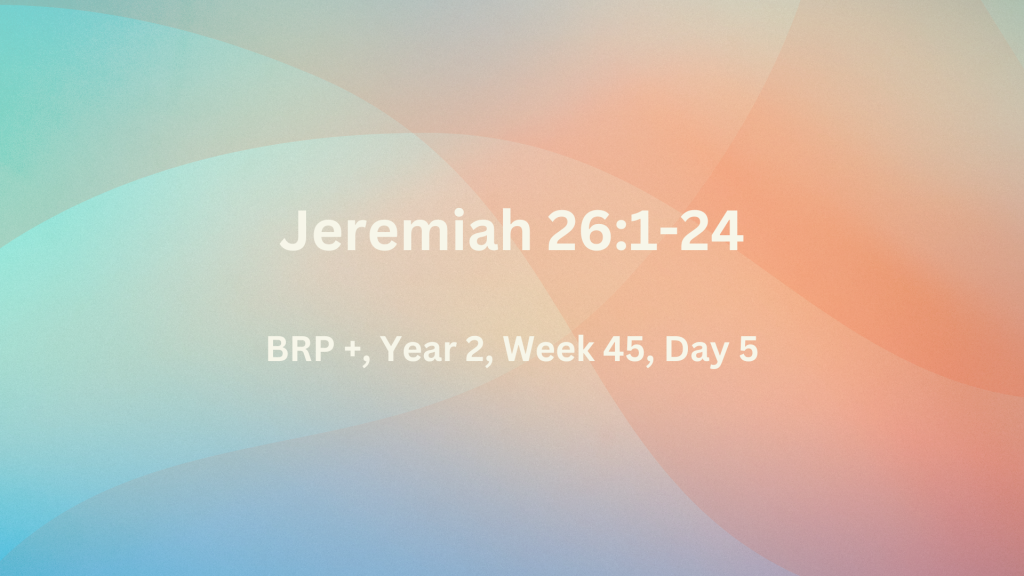Jeremiah 26:1-24
Q.1. When and where did Jeremiah deliver his prophecy? What was his message? Who led Jeremiah’s persecution? What was their plan? – (Jer.26:1-11)
The king of Egypt had established Eliakim as king over Judah, in the place of his brother Joahaz, who was the son of Josiah. The king of Egypt changed Eliakim’s name to Jehoiakim. He did evil in God’s sight during his eleven-year reign (Jer.26:1 c.f. 2 Chron.36:1-5). Jeremiah was told to give God’s indictment against the cities of Judah in the court of the Lord’s house, without omitting a word (Jer.26:2). This was an act of grace. God hoped that – perhaps they will listen and everyone will turn from his evil way, that I may repent of the calamity which I am planning to do to them because of the evil of their deeds (Jer.26:3). However, if they refused to listen to God’s Word sent repeatedly through His prophets, the Temple would be destroyed like Shiloh had been (Jer.26:4-5 c.f. Josh.18:1; 1 Sam.4:12, 21-22). The false priests and prophets and the people took offence at the message and demanded from the officials – a death sentence for this man! For he has prophesied against this city as you have heard in your hearing (Jer.26:11).
Q.2. What appeal did Jeremiah make before the officials? How did King Jehoiakim treat God’s servant? Why did the officials save Jeremiah? – (Jer.26:12-24)
Jeremiah bravely stood his ground – … The Lord sent me to prophesy against this house and against this city all the words that you have heard. 13 Now therefore amend your ways and your deeds and obey the voice of the Lord your God; and the Lord will change His mind about the misfortune which He has pronounced against you (Jer.26:12-13). He reminded them – know for certain that if you put me to death, you will bring innocent blood on yourselves, and on this city and on its inhabitants; for truly the Lord has sent me to you to speak all these words in your hearing (Jer.26:15 c.f. Mt.23:34-35). King Jehoiakim was offended by Jeremiah’s warning, so sought to have him put to death (Jer.26:21). However, the officials recognized that Jeremiah spoke the Truth, so declared that there should be no death sentence for him, because he had spoken to them in the name of the Lord their God (Jer.26:16). Some of the elders addressed the assembly and reminded them of a similar message from the prophet Micah to Hezekiah (Jer.26:18 c.f. Mic.1:1). They added – 19 Did Hezekiah king of Judah and all Judah put him to death? Did he not fear the Lord and entreat the favour of the Lord, and the Lord changed His mind about the misfortune which He had pronounced against them? But we are committing a great evil against ourselves (Jer.26:19 c.f. 2 Chron.29:6-11). They also recalled a similar prophetic warning from Uriah from Ephraim (Jer.26:20). Jehoiakim responded by bringing Uriah back from Egypt and putting him to death (Jer.26:21-23). However, Jeremiah was protected – But the hand of Ahikam the son of Shaphan was with Jeremiah, so that he was not given into the hands of the people to put him to death (Jer.26:24).

